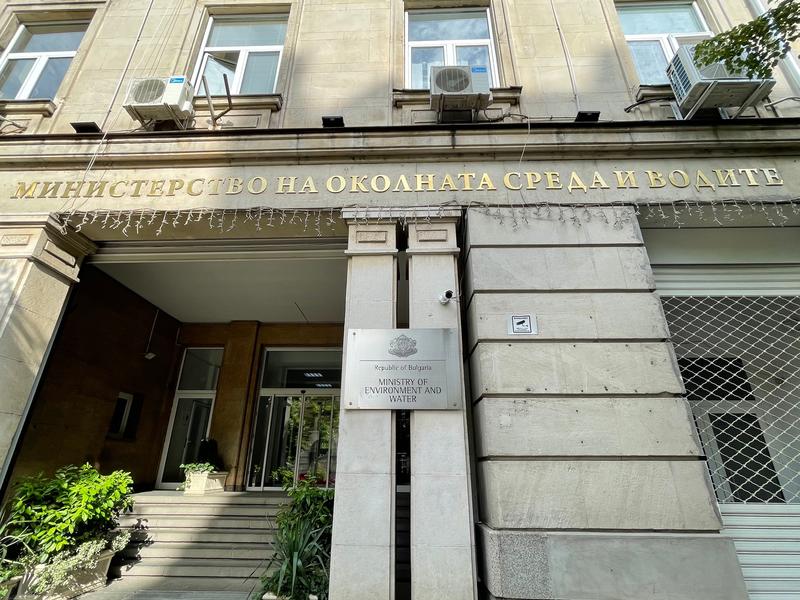Sea waters monitoring shows no evidence of approaching potential pollutants as a result of the incident in Ukraine
26 Jun, 2023 | 16:48
- The results of the samples taken on 19.06.2023 in Bulgarian Black Sea waters show compliance with the environmental quality standards
The Ministry of Environment and Waters (MOEW) conducts regular monitoring of the state of sea waters after the destruction of the wall of the Nova Kakhovka dam, located on the Dnieper River in the territory of Ukraine.
The latest data from the digital modelling of the Centre for Integrated Coastal Zone Management and Monitoring of the “N. Y. Vaptsarov” do not indicate contamination of Bulgarian Black Sea waters with potential pollutants due to the incident.
The prevailing Southern wind in recent days has suppressed and directed the waters of the Dnieper, Dniester, and Danube rivers - below and above the Danube Delta, in a Northern direction. In turn, the water of the Danube is also suppressing and directing the waters of the other two rivers in a Northern direction. This delays Dnieper waters in reaching the territorial sea waters of Bulgaria.
The Black Sea Basin Directorate and the Regional Laboratory - Varna at the Executive Environmental Agency monitor the state of the Black Sea waters on a weekly basis at three additional sites in the coastal zone that were designated in response to the newly unfolding situation - Durankulak, Shabla, and Kaliakra coast.
The results of the sampling carried out on 19.06.2023 in the Bulgarian Black Sea area show the following:
- No excess values were detected at Durankulak coast. Minor excess volumes were found for copper (Shabla coast, Kaliakra coast), zinc and aluminium (Kaliakra coast). Given the data on the speed and direction of the sea currents from 19.06.2023, the these minor exceedances cannot be linked to the Nova Kakhovka dam incident;
- The data for the other metals tested are either below the method detection threshold or below the relevant ambient quality standard;
- Data for the radionuclides caesium-137 and tritium are under analysis;
- No excess values have been detected for the additional indicators introduced after the Nova Kakhovka dam incident (pesticides and PCBs);
- An assessment of trends related to the monitored water status can be made after the accumulation of data from at least four measurements.
- The MOEW is in constant exchange of information with the Ukrainian, Moldovan, and Romanian authorities on potential pollution in Black Sea waters.
The radiation background in the Odessa region is within normal limits. The Bulgarian Embassy in Kiev informs about this in its regular updates to the MOEW.
Up-to-date information on the results of the measurements is provided to the competent institutions and the public in due course.
The monitoring of the sea water status is coordinated with the Ministry of Health and the Ministry of Tourism in order to ensure a calm tourist season.
Signals in cases of possible signs of pollution along the coastline can be submitted to the Green Phone of the Ministry of Environment and Water: 0887 088 440 or 02/9888205, as well as to e-mail address: nccw@moew.government.bg, and also to the Green Phone of the Regional Inspectorate of Environmental Protection - Varna: 0884 290 634 or 052/634 582, Regional Inspectorate of Environmental Protection - Burgas: 0889 096 577 or 056/813 212, and Basin Directorate Black Sea Region - Varna. 0886 406 816.
Dear media representatives,
The MOEW Press Centre is at your disposal for further questions related to Bulgaria Black Sea waters monitoring.
E-mail address: press@moew.government.bg
